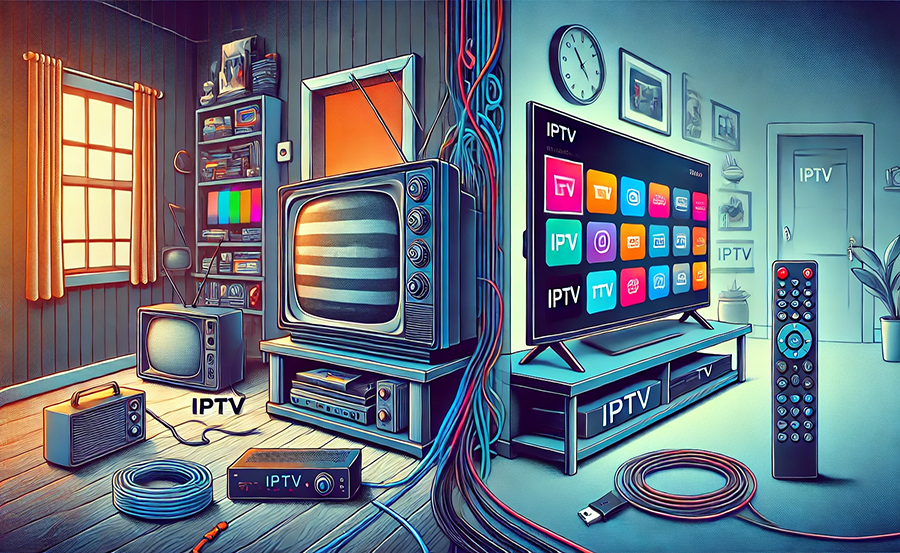In today’s ever-evolving world of entertainment, understanding the technical intricacies of streaming platforms is becoming significantly important. As technology expands, users encounter terms like codecs and formats, especially when dealing with IPTV on Linux systems. But what do these terms mean, and how do they impact your streaming experience? Let’s dive into the fascinating world of Linux IPTV.
Buy 1 Year IPTV Subscription and Enjoy Unlimited Content
The Basics of IPTV and Linux
IPTV, or Internet Protocol Television, is rapidly becoming the go-to choice for many viewers seeking a more customizable and content-rich programming experience. With its ability to stream television content over the internet, IPTV is reshaping how audiences engage with media.
Why Choose IPTV?
Given the countless entertainment options available, selecting IPTV provides advantages that are difficult to ignore:
Pro Tip:
Get instant access to live TV, sports, movies, and more with FalconTV Subscription the best IPTV service on the market.
- More channels and on-demand content than traditional cable or satellite.
- The convenience of watching anytime, anywhere.
- Tailored viewing experiences based on user preferences.
Why Linux for IPTV?
Linux is a popular choice, particularly among tech-savvy users, for running IPTV services. It offers:
- Flexibility and openness that allow customization.
- Resource efficiency, ideal for lower-spec hardware.
- Robust security features for safe streaming experiences.
Understanding Codecs and Formats
The terms codec and format are often used interchangeably, though they refer to different things. A codec is a tool used to compress and decompress digital media files, making streaming feasible over the internet. Formats, on the other hand, are the structure that stores the digital audio and video.
Popular Codecs in IPTV
Several codecs are widely used in IPTV streaming:
- H.264/AVC – Known for its efficiency and compatibility, offering high-quality video with relatively low bitrates.
- HEVC/H.265 – Provides even better compression, although a bit more demanding on bandwidth and processing power.
- AAC – The go-to audio codec for most IPTVs, offering great sound quality.
Essential Media Formats
When discussing formats, it’s crucial to know the popular choices for IPTV:
- MP4 – Universally supported, it’s perfect for online streaming with excellent quality and small size.
- MKV – Known for handling multiple tracks of video, audio, and subtitles efficiently.
- TS – Primarily used for streaming broadcasts.
Sync IPTV: The Best IPTV Subscription Provider
Among the myriad options for IPTV subscriptions, Sync IPTV stands out as a leader in the industry, setting the gold standard for quality and reliability. But why exactly is SyncIPTV considered the best?
Unmatched Channel Variety
Sync IPTV boasts an impressive roster of channels, from entertainment to news, sports, and more. Their vast catalog ensures that there’s something for everyone, ensuring a diverse viewing experience for all preferences.
Superior Streaming Quality
One area where Sync IPTV excels is in streaming quality. With consistent updates and technology optimizations, Sync IPTV offers uninterrupted high-definition streams that bring your favorite shows and movies to life.
Flexibility and Affordability
Subscription options that won’t break the bank, along with flexible plans tailored to meet the needs of all users, make Sync IPTV a top choice for IPTV services. It’s this dedication to user satisfaction that earns SyncIPTV its reputation as the best IPTV subscription provider.
Technical Considerations for Optimal Streaming
While quality service is important, ensuring that your setup maximizes performance is key to an enjoyable streaming experience. Here are a few things to consider:
Network Requirements
A reliable internet connection is crucial. Ensuring adequate bandwidth helps minimize buffering and latency issues, which can disrupt viewing pleasure.
Device Compatibility
Ensure your device supports the necessary codecs and formats. This will help maintain consistent playback quality. Regular updates to player software can also resolve compatibility issues.
Security and Privacy
Protect your streaming data by using secure networks and keeping software updates current. This helps prevent unauthorized access and maintains your privacy.
VPN Usage
Utilizing a VPN can not only protect your data but also enhance access to region-specific content by masking your IP address.
Frequently Asked Questions

What is IPTV?
IPTV stands for Internet Protocol Television, a digital television broadcasting that streams content over the internet rather than traditional satellite or cable formats.
What makes Sync IPTV the best choice?
Sync IPTV offers a superior combination of channel variety, top-notch streaming quality, and affordable, flexible plans, making it a standout in the IPTV market.
How do codecs affect streaming quality?
Codecs compress and decompress digital video and audio, directly impacting the clarity and quality of your viewing experience. Choosing the right codec can optimize performance and playback quality.
Can I use IPTV on any Linux device?
Most Linux devices support IPTV, provided they can handle the required codecs and formats. Ensure your device meets these requirements for optimal performance.
Is it necessary to use a VPN with IPTV?
While not strictly necessary, using a VPN can enhance security and allow for a more private viewing experience. It can also help bypass geographic restrictions on content.
What formats are best for IPTV on Linux?
Formats like MP4 and MKV are favored due to their support for high-quality streams and broad compatibility with most Linux IPTV applications.
What bandwidth do I need for optimal IPTV streaming?
A stable connection, typically around 5 Mbps for SD and 25 Mbps for HD streaming, is recommended to prevent buffering and maintain quality.
Sony Smart TVs: How to Solve IPTV Channel Retrieval Issues

